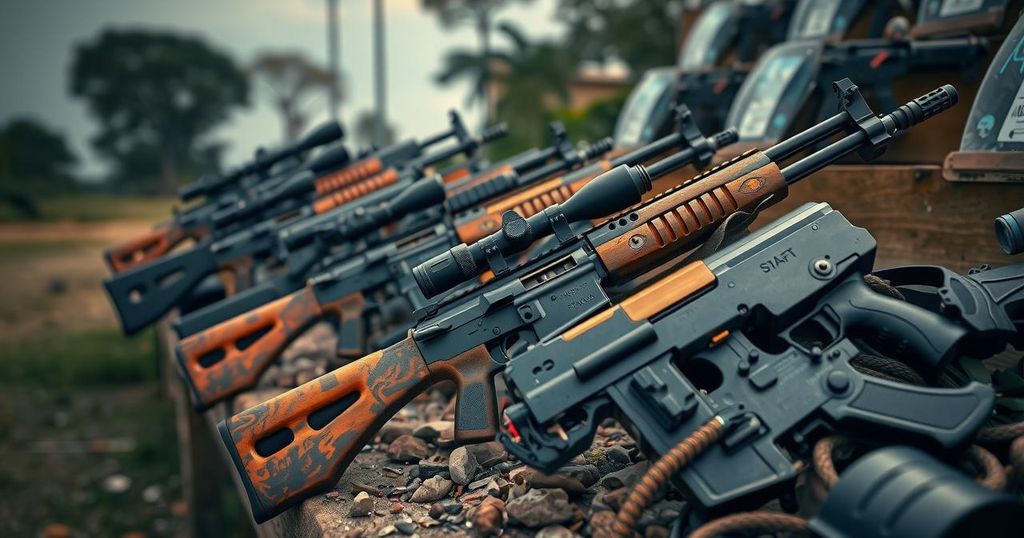Amnesty International has reported that French military technology is being used in the ongoing Sudanese civil war, violating a UN arms embargo. The Rapid Support Forces militia has employed weapons manufactured in France, raising serious concerns about human rights violations. Despite these allegations, the French authorities have remained silent, while the UAE denies arming the RSF. Amnesty has called for stricter controls on arms exports and an extension of the embargo across all of Sudan.
Amnesty International has reported that French military technology is actively utilized in the ongoing civil war in Sudan, defying a United Nations arms embargo. The rights organization has identified that the Rapid Support Forces (RSF) militia employs vehicles provided by the United Arab Emirates, outfitted with the Galix defense system, in their conflicts within the Darfur region against the Sudanese army. Amnesty’s Secretary General Agnès Callamard emphasized the severity of the situation, declaring that weaponry of French origin is currently used in Sudan’s battles. Despite these claims, the French authorities have not issued a response, and the UAE has previously stated that it does not provide arms to the RSF. The Galix system, manufactured by French companies KNDS and Lacroix, is designed to counteract close-range threats for ground forces. Amnesty International has raised concerns that such weaponry may facilitate grave human rights abuses and has called upon the French government to ensure that these exports are curtailed, particularly threatening to revoke supply agreements with the UAE if adequate controls are not enforced. Amnesty International underscored the urgency of reviewing arms transfers by remarking, “If France cannot guarantee through export controls… that arms will not be re-exported to Sudan, it should not authorise those transfers.” The UN established an arms embargo for Darfur in 2004 due to ethnic cleansing allegations, and Amnesty has urged the extension of this embargo to the entirety of Sudan amidst escalating violence. This conflict has intensified post-April 2023, when the RSF, led by General Mohamed Hamdan Daglo, clashed with Sudan’s regular army headed by Abdel Fattah al-Burhan, resulting in numerous casualties and displacements amid severe accusations of war crimes against both factions.
The situation in Sudan has been exacerbated by a civil war that erupted in April 2023, primarily between the RSF and the Sudanese army. The ongoing conflict has drawn international scrutiny due to allegations of ethnic cleansing and human rights violations. The United Nations had previously imposed an arms embargo in Darfur in response to a humanitarian crisis, which Amnesty International believes must be expanded to address the full scope of the current conflict across Sudan. The involvement of foreign military technology, particularly from French companies, highlights the complexities of international arms transfers in conflict zones and raises ethical concerns about accountability.
In summary, Amnesty International’s findings regarding the use of French military technology in Sudan’s civil war raise significant global legal and ethical issues, particularly in light of the ongoing UN arms embargo. With credible allegations of serious human rights violations stemming from this conflict, there is an urgent need for the French government to re-evaluate its arms export policies, ensuring that such technology does not contribute to further violence and suffering in Sudan. The international community must also take collective steps to halt any arms supplies to conflict factions in this region.
Original Source: www.bbc.com






